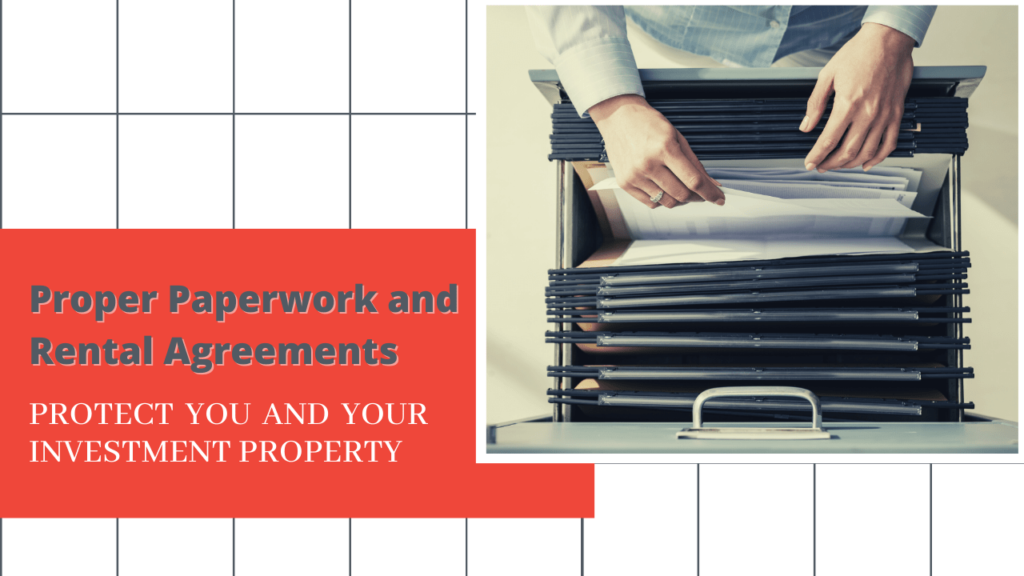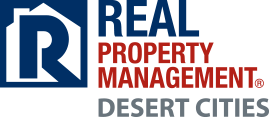How Proper Paperwork and Rental Agreements Protect You and Your Investment Property

Keeping your paperwork organized is certainly not the most exciting part of owning a rental property. It’s kind of tedious, actually.
But, it’s also important. Property paperwork and rental agreements will protect you and your investment property. The right documentation will ensure you’re compliant with all laws and regulations.
If you’re renting out a Palm Springs home, make sure you have a system in place for all the paperwork you need, starting with your rental agreement.
Remember that when we use the term “paperwork,” we’re usually talking about digital files. No one expects you to have a heavy paper ledger to track all of your rental payments. A digital or cloud-based system can help you stay organized and accountable. Make sure you’re leveraging all the technology that’s available to assist with the completion and filing of essential documents.
Here’s what we want you to know about your paperwork and rental agreements.
Leasing Paperwork: Applications and Screening
Documenting your leasing process is especially important. It demonstrates that you are consistent and objective when you’re marketing your property and screening your tenants. This will protect you if there’s ever a fair housing complaint or a dispute over fairness.
Here’s what you’ll need when it comes to leasing paperwork:
- Rental criteria. This is a standard set of criteria that’s needed to provide applicants before they fill out an application. When you tell prospective applicants exactly what you’re looking for in terms of credit, income, and past eviction and rental histories, they can decide whether they stand a good chance of being approved.
- Rental application. Use an application that’s legally compliant in California. You should collect as much information as is allowed, and you always want to get your applicant’s permission to run background checks and check credit, etc.
There’s also your listing, and any information you collect on tenants during the showing process. The Fair Credit Reporting Act stipulates how you should handle personal and financial information. Make sure all of the data you collect during the screening process is stored securely.
Palm Springs Rental Agreements
Everything starts with your lease when you’re renting out a property. The lease will tell your tenants what they’re responsible for. It’s where you’ll lay out your rent collection policy and the process for reporting maintenance.
A strong lease protects you because it’s enforceable. It will be needed if your tenant disputes a security deposit charge, if you have to evict for nonpayment of rent, or if you notice a violation of the lease agreement during an inspection.
Here’s what every Palm Springs rental agreement must include:
- Contact Information
The lease agreement should start with identifying information. You need the names, addresses, phone numbers, and email addresses for all tenants, owners, and if applicable – Palm Springs property managers. Any dependents who are living in the home but not listed as financially responsible parties on the lease should also be included.
- Lease Term
The lease agreement also needs to reflect the term of the lease. It needs a start date and an end date, and then it needs to reflect what happens at the end of the lease period. Your lease should state whether it automatically renews, or if it moves to a month-to-month lease.
- Rent Collection Policy
Make sure to include your rent collection policy. This ought to reflect how much rent is due, when it should be paid, and how it should be paid. You’ll need to include information on grace periods and late fees as well as the amount of the security deposit that was collected. You now need to indicate whether your property falls under the statewide rent control act or whether it’s exempt.
Due to recent legal changes, your lease must also reflect whether your property is subject to or exempt from the statewide rent control laws.
- Establish Landlord and Tenant Responsibilities
Make sure your lease reflects who is responsible for what. Address the utilities and lawn care and pool care and who pays for those services. You’ll want tenants to reference how maintenance should be reported if there’s a repair issue. A good lease tells tenants what they’re responsible for during the lease period.
- Rules and Requirements
The lease needs to identify what is allowed and what isn’t allowed in your property. If you don’t want any smoking, make sure the lease prohibits it. If you don’t want more than one car per resident parked outside, the lease should say that. If you want guests to stay no longer than three days, make sure that language is in the lease.
When you’re renting out a property in an HOA, you’ll also need to provide the tenant with a complete copy of HOA rules and regulations. You should indicate in your list that the tenant will be responsible for any fines or penalties incurred as a result of their behavior.
- Amendments and Addenda in Rental Agreements
There are a number of addenda that need to be included in a California lease agreement, specifically information on lead based paint and mold disclosures. Your lease must advise tenants about the registered sexual offender database in case they want to look at data for the neighborhood and it must also address chemicals and pesticides used in any pest control measures that are taken against things such as bed bugs and termites.
Make sure your lease is clear and concise. Use a font that’s large enough for a reasonable person to read. In fact, when it comes to referencing rent control, there are specifics about the font that needs to be used. The verbiage must be in 12-point font. Make sure you pay attention to this; you don’t want your lease thrown out in court because the font you chose was too small.
Maintenance and Accounting Records
 You’ll need to keep careful track of your maintenance requests, vendor invoices, and warranty information. Accounting must also be well-documented. Not only do you need to track income and expenses, it’s also important to have all of your tax documents in order when it’s time to file. Detailed financial reports can show you where you’re earning and losing the most money. This will help you make smarter investment decisions going forward.
You’ll need to keep careful track of your maintenance requests, vendor invoices, and warranty information. Accounting must also be well-documented. Not only do you need to track income and expenses, it’s also important to have all of your tax documents in order when it’s time to file. Detailed financial reports can show you where you’re earning and losing the most money. This will help you make smarter investment decisions going forward.
There’s a lot to keep track of when renting out a Palm Springs property. If you’d like some help with best practices, technology recommendations, or simply staying organized, contact us at Xepco Properties. We’d be happy to help.

